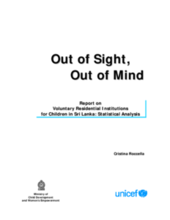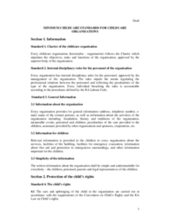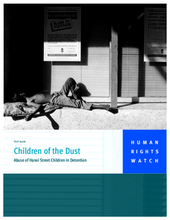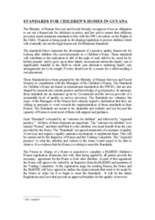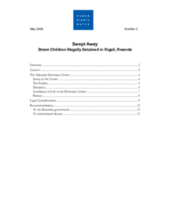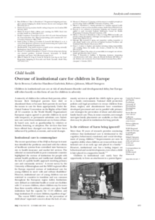Displaying 1401 - 1410 of 1510
This report provides a general overview of the situation of voluntary residential care institutions in Sri Lanka through the results of a national assessment campaign conducted in all districts by Probation Officers and Child Rights Promotion Officers.
Guidelines for the minimum standards for residential childcare institutions in Armenia, including how the child should be received, cared for, and the arrangements for the child leaving the institution.
Overview of institutional and alternative care for Children in Need of Special Protection in Vietnam
For street children in Hanoi, Vietnam is falling far short of its obligations under Vietnamese and international law, including the Convention on the Rights of the Child.
Practical and professional paperwork for residential care including registration and assessment forms, application for renewal of licences, referral forms, and emergency admission forms. Can be modified for different country contexts.
A set of standards for measurable quality in service provision for children living in homes. Outlines the rights of a child, planning and legalizing children’s care, children’s home administration, management and staffing, and safeguarding child welfare while in the home, which includes nutrition, health, education and religion.
Documents assessment of child welfare and protection of children in orphanages in Liberia.
This report details the conditions of children held at an unofficial detention center in Kigali, Rwanda, held in overcrowded buildings and suffering from a lack of adequate food, water, and medical care, and subjected to abuse.
This document presents the full policy on the alternative care of children in Cambodia.
This article discusses the use of institutional care for children in Europe and shows that it remains common place despite the evidence of harm for children, including attachment disorder and developmental delay.

